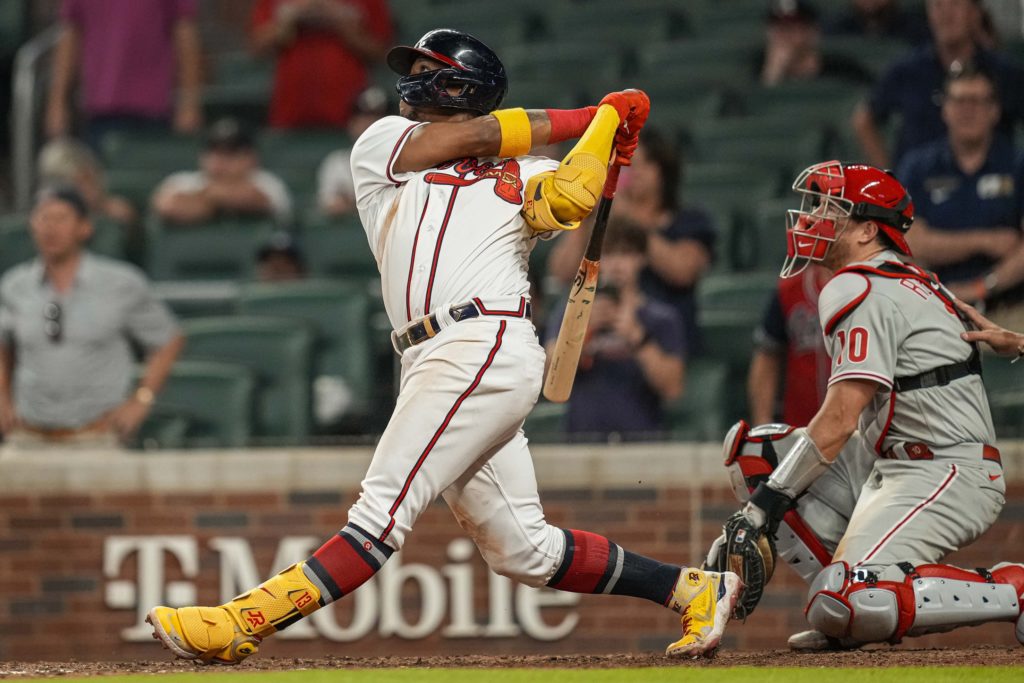Ad Disclosure
The Phillies Still Look Like the Phillies, So Now What?
By Bob Wankel
Published:

The Phillies lost Tuesday night.
Absurd as it was, recapping their latest mind-numbing setback feels somewhat pointless, particularly because the game’s story arc combined all the familiar elements of their too-frequent, late-game train wrecks.
Some missed opportunities at the plate and suspect defense paved the way for a “shorthanded” bullpen to set the whole thing on fire.
Instead of a win that would have stacked up as their best of the season thanks to Bryce Harper’s ninth-inning heroics, the Phillies instead produced their latest “you’ve got to be f***in’ kidding me” loss in less than two months.
It was a loss that produced many questions, all of which are fair:
James Norwood in the sixth? Nick Nelson coming back in the ninth for a two-inning save? Seranthony Dominguez and Corey Knebel both unavailable? What are we doing here?
Not only should there be questions over Joe Girardi’s conservative approach with his bullpen, but there should be questions about why he sent Knebel out on Monday night to protect a four-run lead when he knew he wasn’t going to have Dominguez available Tuesday night. It’s almost as if he was hedging for a two-game split when his team already had one game in hand.
In turn, questions over Girardi’s job security are a hot topic on Twitter, the radio airwaves, and, well, pretty much anywhere anybody is talking about the Phillies today:
https://twitter.com/BrodesMedia/status/1529301375393357824?s=20&t=TGeQSQ2_GCCDw40FXt7FIA
So rather than perform another autopsy on a bad, bad loss, let’s take a step back and look at both the Phillies and Girardi from a higher-level perspective.
Through 43 mostly uninspiring games, the Phillies once again appear to lack bullpen depth along with a consistent and logical plan about how to use the bullpen talent they do have. They also seem to lack urgency, but I’ve spoken with many people around the game that say this term gets thrown around way too much — that it’s just a lazy way to explain things when a team doesn’t consistently hit.
So what is it then?
Maybe it’s a lack of focus or killer instinct. Maybe it’s a team that doesn’t know how to sustain momentum. Maybe the Phillies just haven’t figured it out yet.
Whatever the case, what I do know is this –
The 2022 Phillies were supposed to be different than other recent failed iterations, and in some ways, they are different.
Open up Baseball Reference or FanGraphs. Check out how their offensive numbers stack up against those of other teams. Even following a rough homestand that featured daily offensive impotence, the cumulative numbers still sit pretty:
- As hard as it may be to believe, the Phillies are among baseball’s 10 best offenses in terms of batting average (6th), OPS (6th), slugging percentage (4th), and runs per game (10th).
- Perform the same exercise with the team’s starting pitching. The numbers look pretty good there, too. Both the overall staff and starters have the game’s third-highest WAR, according to FanGraphs.
- Hell, go a little deeper and check the Statcast data. We can skip the finer details, but the Phillies hit the ball hard, and they do so often. What’s more, their opponents don’t.
Yet here they are, now past the quarter mark of the schedule, eight games out of first and on a 75-win pace.
These numbers lead to an interesting question. Why haven’t the Phillies, a team that collectively seems worse than the sum of its parts, played better? After all, it wasn’t supposed to be this way. Not again. Not with the game’s fourth highest payroll and over $232 million in financial commitments.
Maybe the Phillies tread water for two more weeks against a challenging schedule before circling the wagons. Maybe they rattle off a prolonged stretch of outstanding baseball against the soft spot of their schedule, one that changes the standings –and the feel — of a season that has a Groundhog Day vibe to it. It’s worth noting, however, recent history makes this outcome hard to bank on.
Only once under Girardi have the Phillies reached white-hot status. That came last August when they opened the month on an eight-game winning streak. That run was immediately followed a by 2-7 mark over their next nine games, one that quickly pissed all over any sparks of optimism.
For fans and media types, especially in Philadelphia, coaches and managers often make for the most convenient targets when things go wrong, sometimes unfairly so. In the case of the Phillies, I’ll also tell you that many decisions from the dugout, including bullpen usage, are part of a data-driven collaborative process that extend far beyond Girardi’s gut.
That said, there’s two things I’m having a hard time getting past this morning.
Following the 2019 season, the Phillies decided they had to move on from former manager Gabe Kapler in order to get where they wanted to go. Regardless of where you fall on Kapler, he posted a .497 winning percentage over two seasons and 324 games. With greater expectations and better talent, Girardi has posted a .491 winning percentage over two-plus seasons and 265 games.
What, then, is the sample size needed to make a similar conclusion on this manager? Is it the end of this road trip? The regular season’s midway point? The end of this season?
That’s a question for Dave Dombrowksi and Phillies ownership to consider, but while they do, it may be wise for Girardi to stop managing his bullpen during a key series like it’s a March 13th Grapefruit League game in Dunedin.
Bob Wankel covers the Phillies for Crossing Broad. He is also the Vice President of Sports Betting Content at SportRadar. On Twitter: @Bob_Wankel E-mail: b.wankel@sportradar.com